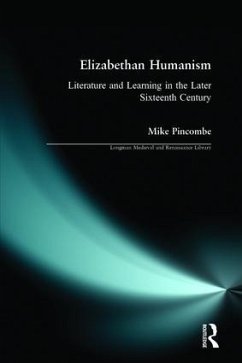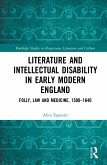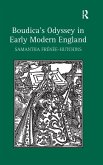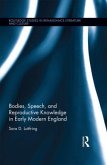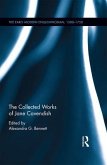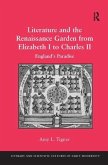This work is an account of Elizabethan humanism, dedicated to the Elizabethan period of Renaissance writing. It offers a new approach to the topic by using records of the words humanity and humanist to establish an understanding of the word humanism.
'This book is written with refreshing lucidity, and is very well organized....a really excellent piece of work which should be part of every university library, and which should be required reading for Renaissance scholars'. Dr. Rob Maslen, University of Glasgow It is impossible to understand Elizabethan literature without a general concept of the all-important term "humanism." This book offers a new perspective on the term and its application to Elizabethan literary culture, one which will help students at all levels to grasp the relationship between the texts they study and the complex group of ideas surrounding the word "humanity." The opening chapter provides a comprehensive introduction to the intellectual background to Elizabethan humanism. The book then proceeds to investigate certain key ideas in greater detail, such as Ciceronian humanism and myths of cultural transfer, before moving on to a series of chapters devoted to important individual works dating from the late 1570's, including John Lyly, Edmund Spenser, and Philip Sidney, and concluding with studies of Marlowe's "Doctor Faustus" and Shakespeare's "Hamlet." Written in a lucid and informal manner, Elizabethan Humanism provides an accessible guide to the basic principles underlying Elizabethan Humanism, and also equips the reader with the means of making their own informed analyses of other late sixteenth-century texts. Mike Pincombe is a Lecturer in the Department of English Literary and Linguistic Studies at the University of Newcastle.
'This book is written with refreshing lucidity, and is very well organized....a really excellent piece of work which should be part of every university library, and which should be required reading for Renaissance scholars'. Dr. Rob Maslen, University of Glasgow It is impossible to understand Elizabethan literature without a general concept of the all-important term "humanism." This book offers a new perspective on the term and its application to Elizabethan literary culture, one which will help students at all levels to grasp the relationship between the texts they study and the complex group of ideas surrounding the word "humanity." The opening chapter provides a comprehensive introduction to the intellectual background to Elizabethan humanism. The book then proceeds to investigate certain key ideas in greater detail, such as Ciceronian humanism and myths of cultural transfer, before moving on to a series of chapters devoted to important individual works dating from the late 1570's, including John Lyly, Edmund Spenser, and Philip Sidney, and concluding with studies of Marlowe's "Doctor Faustus" and Shakespeare's "Hamlet." Written in a lucid and informal manner, Elizabethan Humanism provides an accessible guide to the basic principles underlying Elizabethan Humanism, and also equips the reader with the means of making their own informed analyses of other late sixteenth-century texts. Mike Pincombe is a Lecturer in the Department of English Literary and Linguistic Studies at the University of Newcastle.

